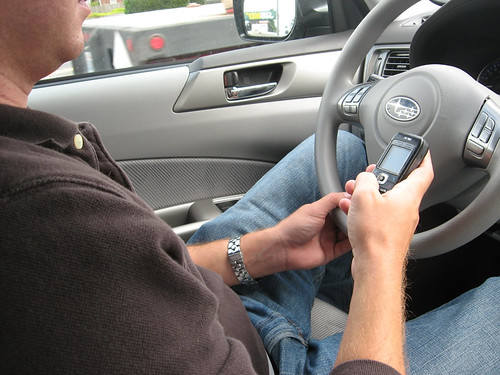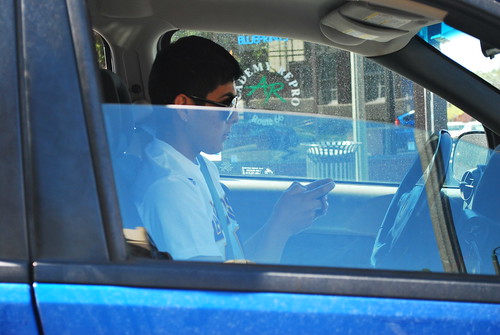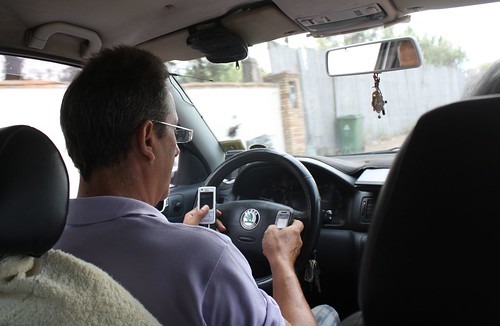The use of cell phones among active drivers is unquestionably controversial, leading to an increasing number of laws that prohibit drivers from sending text messages. Even big name mobile companies are joining the crusade, entreating users to wait before they text. But how have these laws really affected this risky, dangerous behavior?
Less Texting in Urban Areas

Image via Flickr by mrJasonWeaver
Studies show that in many of those states where aggressive laws keep drivers from texting, such as New York and Illinois, urban areas are doing very well. In urban and suburban areas, drivers take the new laws to heart. Traffic violations and accidents involving cell phones in general and texting in particular have decreased. This means that the laws are working.
Furthermore, studies conducted in both Chicago and New York City made it a point to look at estimated long-term effects as well as short-term effects, suggesting that the laws aren’t just making an impact because they’re relatively new.
Rural Drivers Taking Risks

Image via Flickr by Jim Legans, Jr
The reason most traffic and law experts believe that urban drivers decide to stop texting when they’re behind the wheel is due to a higher density of law enforcement. What brings them to this conclusion? It’s the converse analysis that in mildly and deeply rural areas, drivers don’t care about texting laws.
Rural towns and counties in Illinois, New York, and other states with texting laws have, if anything, a higher number of accidents and violations associated with texting. Experts think this has to do with wide open stretches of road that don’t see as much police activity.
Is Texting Now a Game?

Image via Flickr by viviandnguyen_
A high number of texting violations and accidents involve teens, as well as younger drivers in their twenties. The consensus is that these drivers almost see texting as a game. Can they do it without getting caught? How many texts can they send before a police officer sees them? They have less regard for rules because, some law enforcement officials think, they are so connected to their LG cell phones and other devices. They may also believe that, since they are younger, their reflexes are quicker; they think they are perfectly safe if they text and drive.
Drivers Driven to Distraction

Image via Flickr by GerryGaffney
Detractors of texting laws and even some officials think that, with these laws in place, drivers are actually more distracted than they were before. Drivers of various ages now try to send texts without getting caught. They try to start or reply to text conversations on the sly, leading them to pay even less attention to the road and to other drivers. As they surreptitiously try to send texts at red lights or stop signs, they could miss something important, such as a driver coming up behind them too fast.
In some areas, texting laws have done a world of good and drivers are obeying them. In others, drivers simply try to text under the radar, which has the potential to lead to more accidents.
Sources:
http://www.claimsjournal.com/news/national/2012/11/21/217840.htm
http://www.inquisitr.com/405101/cellphone-bans-linked-to-decrease-in-urban-traffic-accidents/
http://www.ajc.com/news/news/texting-while-driving-law-rarely-enforced/nSrTD/
http://www.drive-safely.net/driving-while-texting.html
